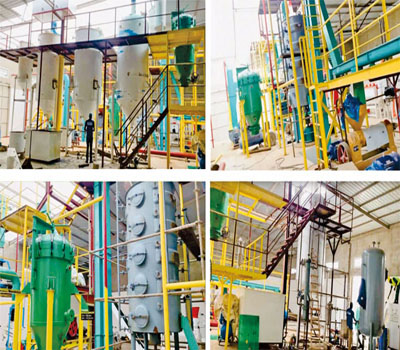Harm of excessive refining of edible oil
Edible oil is an indispensable cooking material in our daily life, but in the process of modern industrial production, many edible oils have been over-refined. Although this over-refining process can prolong the shelf life and improve the appearance and taste, it also brings many potential health hazards. This paper will discuss the harm of excessive refining of edible oil and how we should choose healthier oil products.
What is excessive refining of edible oil?

Edible oil refining refers to the process of removing impurities and bad components from oil by mechanical or chemical means. Generally speaking, the refining process includes degumming, deacidification, decoloration, deodorization and dewaxing. However, excessive refining means that these steps are overused, resulting in a large number of natural components in oil being destroyed or lost.
The main harm of excessive refining of edible oil:
- Loss of nutrients
Excessive refining will destroy the natural nutrients in edible oil, such as vitamin E, phytosterols and polyphenols. These substances have antioxidant effects and help to protect human cells from free radicals. Long-term consumption of edible oil lacking these nutrients may reduce the body’s antioxidant capacity and increase the risk of chronic diseases. 2. Generation of harmful substances
In the process of high temperature refining, some harmful substances may be produced, such as trans fatty acids and 3- chloropropanol esters. Trans fatty acids have been proved to be closely related to cardiovascular diseases, diabetes and other health problems, while 3- chloropropanol ester is a potential carcinogen. - Loss of flavor and natural characteristics
Many unrefined or lightly refined edible oils, such as olive oil and sesame oil, retain the natural fragrance and characteristics of raw materials. However, excessive refining will remove these natural flavors, making edible oil single and lacking in characteristics. In addition, this “odorless” oil may mask the bad smell produced during its processing. - Adverse effects on the environment
Excessive refining requires a lot of energy and chemical reagents, which not only increases the production cost, but also pollutes the environment. For example, chemical reagent residues may pollute water sources, and improper disposal of wastes may also cause damage to ecosystems.
To sum up, although refining edible oil is a necessary step to produce edible oil, it must not be over-refined.
